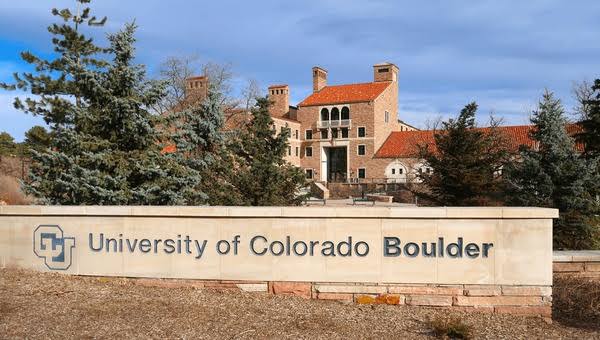
The University of Colorado Boulder (CU Boulder), one of the most prestigious institutions in the Rocky Mountain region, is currently embroiled in a controversy that could have far-reaching implications for both the university and its leadership. Allegations have surfaced that CU Boulder has been inflating its enrollment numbers to secure additional funding from the state and other external sources. This accusation has sent shockwaves through the academic community, raising concerns about the integrity of the university’s administrative practices and its financial transparency.
The Allegations
The allegations first came to light after a whistleblower within the university’s administration contacted local media outlets, claiming that the university had been manipulating its enrollment data for several years. According to the whistleblower, who wishes to remain anonymous for fear of retaliation, CU Boulder has consistently reported higher student enrollment numbers than the actual figures in order to secure additional state funding and to bolster its reputation as a growing, high-demand institution.
The whistleblower provided internal documents and emails that allegedly show a pattern of inflated reporting, particularly in non-traditional student categories such as part-time students, online learners, and graduate students. These categories are easier to manipulate, as the definitions of what constitutes a full-time or part-time student can be stretched, and there is less direct oversight compared to traditional undergraduate programs.
One of the key accusations is that the university has been counting students who enrolled in classes but later dropped out or never attended, as well as inflating the number of students who are taking online courses. These inflated numbers were then reported to the Colorado Department of Higher Education (CDHE), which allocates state funding to public universities based on a range of factors, including student enrollment.
Why Enrollment Numbers Matter
For public universities like CU Boulder, student enrollment numbers are a critical factor in determining how much funding they receive from the state government. Higher enrollment figures typically lead to more state appropriations, as well as increased federal funding through grants and subsidies. Additionally, a larger student body helps the university maintain a competitive position in national rankings, attract more applicants, and justify raising tuition rates.
In CU Boulder’s case, the accusations suggest that the university may have been artificially inflating its student population to secure millions of dollars in additional funding. The whistleblower claims that this practice has been going on for at least five years, allowing CU Boulder to present itself as a thriving institution with a growing student body, even as actual enrollment has stagnated or declined in certain departments.
The University’s Response
In response to the allegations, CU Boulder’s administration has vehemently denied any wrongdoing. Chancellor Philip DiStefano released a statement saying, “CU Boulder operates with the highest level of integrity and transparency in all of our reporting, including student enrollment. We are committed to upholding the trust placed in us by the state of Colorado and by our students and their families.”
The university has also announced that it will conduct an internal investigation to review the claims, though critics argue that an independent, third-party investigation would be more appropriate given the severity of the allegations. CU Boulder officials have stressed that any discrepancies in enrollment reporting were likely due to honest clerical errors or changes in the way student data is collected and categorized, rather than an intentional effort to defraud the state or manipulate funding.
Potential Consequences
If the allegations are proven true, the consequences for CU Boulder could be severe. The university could face significant financial penalties, including the possibility of being required to repay millions of dollars in state funding. Additionally, CU Boulder’s reputation, which has been built over decades of academic excellence, could suffer irreparable damage. The university’s accreditation could also be called into question, as inflated enrollment numbers would violate the ethical standards required by accrediting bodies.
For the university’s leadership, the scandal could lead to resignations or firings at the highest levels. Chancellor DiStefano, who has led CU Boulder since 2009, has already faced calls for greater accountability from student groups and faculty members in recent years, and this scandal could further erode confidence in his administration.
The Colorado Department of Higher Education has also indicated that it is taking the allegations seriously and has launched its own investigation into CU Boulder’s reporting practices. A spokesperson for the CDHE said, “We are committed to ensuring that state funds are allocated fairly and based on accurate data. If it is determined that any institution has misreported its enrollment numbers, we will take appropriate action to address the situation.”
Implications for Students
For CU Boulder’s student body, the scandal has sparked concern about the university’s priorities and its commitment to transparency. Some students have expressed frustration that the university may have been more focused on securing funding and maintaining its image than on addressing the actual needs of its students.

“I feel like the university is always talking about growth and building new facilities, but at the same time, we’re seeing tuition go up and resources get stretched thinner,” said Jessica Martinez, a senior at CU Boulder. “If they’ve been inflating the numbers to get more money, that’s not just dishonest—it’s disrespectful to the students who are already here and struggling with the costs of attending this school.”
Others worry that the scandal could lead to a loss of funding that could affect their education. If the university is forced to repay state funds or if future funding is reduced, it could result in budget cuts, fewer course offerings, and reduced financial aid for students.
A Broader Trend in Higher Education?
The scandal at CU Boulder also raises questions about whether this is an isolated incident or part of a broader trend in higher education. Public universities across the United States have faced increasing pressure to maintain or grow their enrollment numbers in order to secure funding and remain competitive. In recent years, many universities have expanded their online programs, recruited more international students, and increased efforts to retain students in order to boost their enrollment figures.
However, these efforts have not always been successful. Nationally, many universities have seen declines in enrollment, particularly among traditional undergraduate students, due to a variety of factors, including demographic shifts, rising tuition costs, and changing attitudes toward higher education. As a result, some institutions may be tempted to inflate their numbers to protect their funding streams.
Education experts have pointed out that while it is important for universities to report accurate data, the funding models used by many states may also need to be reexamined. “Tying funding so closely to enrollment numbers can create perverse incentives for universities to prioritize quantity over quality,” said Dr. Emily Hayes, a professor of higher education policy. “We need to think about how we can create funding models that support institutions in providing high-quality education to all students, rather than just rewarding them for enrolling as many students as possible.”
Next Steps
As the investigation into CU Boulder’s enrollment practices continues, all eyes will be on the university to see how it handles the situation. For now, students, faculty, and alumni are left wondering how deep the issue goes and what the long-term impact will be on the institution they have come to rely on.
The results of the internal investigation are expected in the coming weeks, and the Colorado Department of Higher Education has said that it will release its findings by the end of the academic year. If CU Boulder is found to have intentionally inflated its enrollment numbers, the university could face not only financial penalties but also a loss of public trust that could take years to rebuild.
In the meantime, the allegations serve as a reminder of the complex challenges facing public universities in an era of shrinking budgets and growing competition for resources. As the scandal unfolds, it will likely prompt broader discussions about how universities are funded and the pressures they face to maintain their financial stability.
For CU Boulder, the road ahead is uncertain, and the university’s leadership will need to act decisively to restore confidence in its operations and ensure that it remains a trusted institution of higher learning.